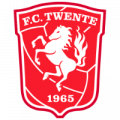
SSC Napoli

1926 Nápoles
Società Sportiva Calcio Napoli, commonly known as Napoli, is one of Italy's most beloved and followed soccer clubs. Founded in 1926, Napoli has played a crucial role in the history of Italian soccer, not only for its successes on the pitch but also for its deep connection to the city of Naples and its passionate supporters. Over the years, the club has experienced both highs and lows, from winning national titles to facing financial and sporting challenges, each moment contributing to Napoli's rich history and unique identity.
The origins and early years
Since its foundation in 1926, Napoli began to forge its identity in the heart of Naples, a city with a rich cultural and sporting tradition. The club's early years were marked by the struggle to establish itself in the competitive world of Italian soccer. Despite the initial challenges, Napoli quickly won the hearts of the locals, who saw the team as a source of pride and hope.
The road to Serie A was not an easy one, but Napoli showed a determination that reflected the spirit of the city itself. As the team began to compete at the highest levels of Italian soccer, its fan base grew, filling the stadium with chants and vibrant colors that would become synonymous with the club. This deep connection between the city and the team helped cement Napoli's identity as more than just a soccer club; it was a representation of the community and its values.
In the years following its founding, Napoli continued to develop on and off the field. Although titles were elusive, the team showed moments of brilliance that foreshadowed future successes. These early years also saw the arrival of some of the club's first heroes, players who won the affection of the fans and left an indelible mark on Napoli's history.
Napoli's stadium, initially the Stadio Ascarelli and then the legendary Stadio San Paolo (renamed Stadio Diego Armando Maradona), became a fortress for the team. The electric atmosphere created by the fans on match days proved to be a formidable asset for Napoli, intimidating opponents and cheering the team on through good times and bad.
As Napoli consolidated its position in Serie A, the club began to attract players of a higher caliber, setting the stage for an era of unprecedented success. This period of growth laid the groundwork for what would eventually become one of the most glorious eras in the club's history, marking the beginning of a deep relationship between the team and its supporters that endures to this day.
The golden era of Maradona
The arrival of Diego Armando Maradona in 1984 marked the beginning of the most successful era in Napoli's history. Considered one of the greatest footballers of all time, Maradona transformed the club, leading it to win its first Scudetto in the 1986-1987 season. Maradona's influence on and off the field was immense, making him a hero to the city of Naples and its fans.
Under Maradona's guidance, Napoli not only won their first league title but also secured a second Scudetto in the 1989-1990 season, cementing their place among the elite of Italian soccer. In addition, the team enjoyed success in Europe, winning the UEFA Cup in 1989. These triumphs represented the heyday of Neapolitan soccer, with Maradona at the center of it all, symbolizing the city's struggle and passion.
During this golden era, the Stadio San Paolo became a symbol of resilience and pride. Home games were spectacular events, with fans creating an intimidating atmosphere for visitors and unwavering support for their team. The connection between Maradona, the team and the city was palpable, with the Argentine adopting Naples as his second home and the Neapolitans seeing him as one of their own.
Maradona's impact on Napoli was such that his legacy transcends sport. He became a symbol of hope and pride for a city often stigmatized by social and economic problems. Maradona and Napoli proved that, with talent and determination, it was possible to overcome adversity and achieve greatness.
Maradona's departure in 1991 marked the end of an era, but his influence on the club and the city of Naples lives on. The seasons he spent at Napoli are remembered as the club's most glorious, and Maradona remains a revered figure, a constant reminder of what the team and its fans can achieve together.
Challenges and resurgence
After Maradona's departure, Napoli faced a period of uncertainty and challenges. The successes of the late 1980s and early 1990s gave way to seasons of struggle, both on and off the field. The club's financial management became a problem, eventually leading Napoli to face serious economic and sporting difficulties.
In the late 1990s and early 2000s, Napoli experienced one of the lowest moments in its history, culminating in relegation to Serie B in 2001. This fall was a devastating blow for the club and its fans, but it also served as a turning point. The adversity strengthened the determination of the team and its supporters to rebuild and come back stronger.
The road back to Serie A was not easy, but Napoli demonstrated a resilience that reflected the spirit of the city. The 2006-2007 season saw the team secure their return to the top flight of Italian soccer, an achievement that was greeted with massive celebrations in Naples. This success marked the beginning of a new chapter for the club, one characterized by the ambition to once again become a dominant force in Italy.
Under the guidance of new owners and with the arrival of fresh talent both on the field and in coaching, Napoli began to rebuild its reputation. The team quickly became a regular contender for the top spots in Serie A and began to make significant inroads in European competitions, reaffirming its status as one of Italy's top clubs.
Napoli's resilience during these challenging years demonstrated the strength of the bond between the team and its fans. Despite the difficulties, Napoli's fans remained loyal, supporting the team through good times and bad. This unwavering loyalty is a testament to the passion that surrounds the club and is one of the reasons why Napoli is considered one of the most beloved teams in Italy.
A new era of success
With a return to Serie A secured, Napoli began to focus on building a team capable of competing for titles once again. The arrival of key players and the implementation of an attractive playing philosophy helped the club establish itself as a regular contender at the top of Italian and European soccer.
Recent seasons have seen Napoli consistently challenge for the top spots in Serie A, with the team putting on some of the most exciting displays of soccer in Europe. The combination of local and international talent has created a dynamic team, capable of taking on the best clubs in Italy and Europe.
One of the most memorable moments of this new era was the conquest of the Coppa Italia in 2012 and again in 2014, trophies that demonstrated Napoli's return to the elite of Italian soccer. These successes were celebrated with enthusiasm by the fans, who saw in these triumphs the confirmation that the club was on the right path.
Participation in the UEFA Champions League has been another highlight for Napoli, with the team facing some of the biggest clubs in Europe. Although the dream of conquering Europe is still pending, Napoli's performances in the competition have been a source of pride for the fans and have demonstrated the team's ability to compete at the highest level.
The role of the fans has been crucial in Napoli's resurgence. The passion and unconditional support of the fans has been a constant, driving the team through difficult moments and celebrating successes as if they were their own. This symbiotic relationship between the club and its fans is what makes Napoli special, a team that represents the dreams and aspirations of its city.
The importance of the youth academy
One of the keys to Napoli's sustained success has been its focus on developing young talent through its youth academy. Investment in state-of-the-art training facilities and a strong youth program has enabled the club to discover and nurture the next generation of players, ensuring a bright future for the team.
Players trained in Napoli's youth academy have been promoted to the first team, demonstrating that the club is not only focused on buying talent but also on developing it. This philosophy has been instrumental in keeping Napoli competitive, allowing the club to have a mix of experience and youth in its squad.
Napoli's commitment to developing local players has also strengthened its connection with the city and its fans. Seeing one of their own succeed on the biggest stage is a source of immeasurable pride for the club's supporters, and strengthens the Neapolitan identity that the team represents.
The youth academy is not only a source of talent for the first team but also an important source of revenue for the club. The sale of Napoli-trained players to other clubs has provided crucial financial resources, which are reinvested in the team and training facilities, creating a virtuous cycle of development and success.
The importance of the youth academy in Napoli's long-term strategy demonstrates the club's holistic approach to success. By focusing on developing local talent, Napoli secures its sporting and financial future while maintaining its commitment to the community and its fan base.
The relationship with the city of Naples
The connection between Napoli and the city of Naples is deep and multifaceted. The team not only represents the city on the sporting stage but is also a symbol of the culture, history and spirit of Naples. This relationship goes beyond soccer, reflecting the ups and downs, struggles and triumphs of the city itself.
Match days at the Diego Armando Maradona Stadium are a manifestation of this connection, with fans filling the stands, creating a vibrant and passionate atmosphere. For many Neapolitans, Napoli is more than a soccer club; it is an integral part of their identity and a source of pride in the community.
Napoli's impact on the city of Naples extends off the field. The club is actively involved in community initiatives, working on projects that benefit the city and its inhabitants. These activities help strengthen the ties between the team and the community, demonstrating Napoli's commitment to the well-being of the city.
The history of Napoli and Naples are intrinsically intertwined, with soccer serving as a reflection of life in the city. The team's successes and challenges are deeply felt in the streets of Naples, where passion for soccer is an essential part of everyday life. This emotional connection is what makes the relationship between the club and the city unique.
The future of Napoli and its relationship with Naples looks bright. With the team continuing its quest for success in both Italy and Europe, and with the fans supporting with unwavering fervor, the bond between the club and the city grows even stronger. Napoli not only represents Naples on the pitch; it embodies the spirit, resilience and passion of the city, uniting the community in celebration of soccer and life itself.
Napoli's story is one of passion, struggle and triumph, reflecting not only the trajectory of a soccer team but also the indomitable spirit of the city it represents. Through the ups and downs, Napoli has maintained its identity and its connection to Naples, proving that soccer can be a powerful force for unity and hope. With every game, every season, Napoli continues to write its history, forging a legacy that will resonate in the hearts of fans and on the streets of Naples for generations to come.







































